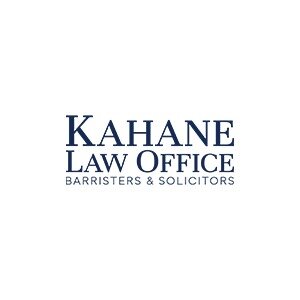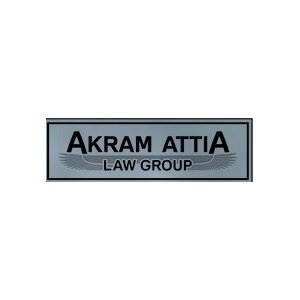Best Arrests & Searches Lawyers in Edmonton
Share your needs with us, get contacted by law firms.
Free. Takes 2 min.
List of the best lawyers in Edmonton, Canada
About Arrests & Searches Law in Edmonton, Canada:
Arrests & Searches law in Edmonton, Canada is governed by Canadian federal law, specifically the Canadian Charter of Rights and Freedoms. The Charter provides protections to individuals during arrests and searches by law enforcement officers. It ensures the individual's right to be secure against unreasonable search or seizures, the right not to be arbitrarily detained or imprisoned and the right to retain and instruct counsel without delay and to be informed of that right when arrested or detained.
Why You May Need a Lawyer:
There are several situations where you may require legal help in Arrests & Searches. For instance, if you believe your rights were violated during a search or seizure, or during an arrest or detention. You may also require a lawyer if you are charged with a crime as a result of evidence found through an unlawful search. A criminal defense lawyer can help you understand your rights, present defenses in your favor, and challenge the legality of the search or the arrest.
Local Laws Overview:
In Edmonton, the key aspects of local laws relevant to Arrests & Searches involve the procedures and protocols that law enforcement officers must follow. For instance, they must have a valid reason or suspicion to stop and search you or your property. They must also inform you of your rights when you are arrested, including the right to remain silent and the right to legal counsel. If these procedures are not followed correctly, any evidence found may be ruled inadmissible in court.
Frequently Asked Questions:
What are my rights if I am arrested?
Upon arrest, you have the right to be informed of the reasons for your arrest, the right to remain silent, and the right to lawyer. It's crucial that you understand these rights and exercise them appropriately.
Can the police search my property without a warrant?
Generally, the police need a search warrant to search your property. However, there are exceptions such as when immediate action is necessary due to threat to life or to prevent destruction of evidence.
What can I do if my rights were violated during an arrest or a search?
If your rights were violated during an arrest or a search, it’s crucial to consult a lawyer. You may be able to challenge the legality of the arrest or search, which could potentially lead to a exclusion of evidence or dismissal of the charges.
What is the role of a criminal defense lawyer?
A criminal defense lawyer can guide you through the legal process, help protect your rights, and develop a defense strategy on your behalf. They can also negotiate plea deals, represent you during trial, and challenge the legality of the arrest or search.
Do I need a lawyer even if I am innocent?
Yes, it's recommended to have a lawyer to navigate the legal process and ensure that your rights are adequately protected, irrespective of whether you are innocent or guilty.
Additional Resources:
The Edmonton Police Service website provides information on the procedures followed during arrests and searches. The Canadian Bar Association and the Law Society of Edmonton also offer resources on arrests and searches. Moreover, community legal clinics in Edmonton may be able to provide you legal advice free of charge or at a lower cost.
Next Steps:
If you find yourself in a legal situation involving an arrest or a search, consult a lawyer immediately. Be sure to provide them all relevant details to enable them represent you effectively. If you cannot afford a lawyer, reach out to community legal clinics in Edmonton for pro bono or low-cost legal representation options.
Lawzana helps you find the best lawyers and law firms in Edmonton through a curated and pre-screened list of qualified legal professionals. Our platform offers rankings and detailed profiles of attorneys and law firms, allowing you to compare based on practice areas, including Arrests & Searches, experience, and client feedback.
Each profile includes a description of the firm's areas of practice, client reviews, team members and partners, year of establishment, spoken languages, office locations, contact information, social media presence, and any published articles or resources. Most firms on our platform speak English and are experienced in both local and international legal matters.
Get a quote from top-rated law firms in Edmonton, Canada — quickly, securely, and without unnecessary hassle.
Disclaimer:
The information provided on this page is for general informational purposes only and does not constitute legal advice. While we strive to ensure the accuracy and relevance of the content, legal information may change over time, and interpretations of the law can vary. You should always consult with a qualified legal professional for advice specific to your situation.
We disclaim all liability for actions taken or not taken based on the content of this page. If you believe any information is incorrect or outdated, please contact us, and we will review and update it where appropriate.










